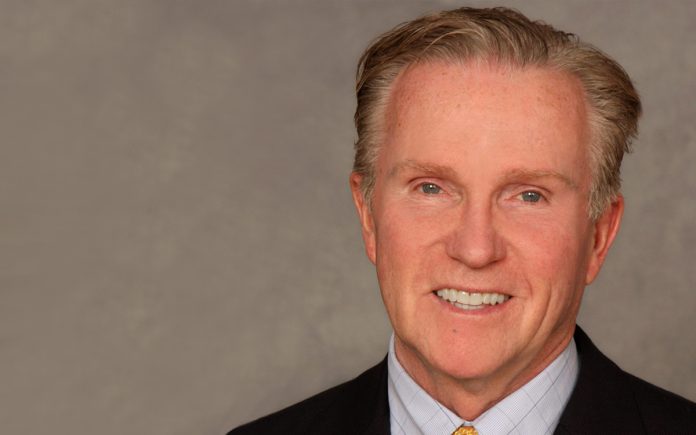The title of this piece is a take on the airy and buoyant song of 1977, “Love Is in the Air.” Over the last few weeks, despite so much turmoil and unsettling polarization in our country and around the world, I’ve been struck by the number of times the word “kindness” has brightened my encounters with others. Here are some examples relevant to my work in physician health.
It is mid-morning June 20, 2018, and I’m standing in line to pay for my coffee in our hospital cafeteria. Standing in front of me is a young man whose face I remember from the day before. He was sitting in the front row of the huge assembly of our incoming residents and fellows at the State University of New York (SUNY) Downstate that my resident wellness committee and I oriented the day before. I have written about this experience twice in this blog (“How to Welcome Incoming Residents” on July 18, 2014 and “How to Welcome Incoming Residents: Learning from Tragedy” on July 30, 2015). So I tapped this intern on the shoulder, extended my hand, and personally greeted him. His smile was as big as it was the day before. After we shook hands, he said “I’m so excited to be here…and I’m scared stiff. But you know what? I feel better already. Lots of messages yesterday. But what I liked most is how kind those guys are. Thanks Dr Myers for arranging it and please thank your residents for me.”
A week later I meet with a young woman, a resident on medical leave from another institution, to do a fitness-for-duty evaluation. I’m disguising the details here for obvious reasons. Her story is complicated. She lives with a major psychiatric disorder and has had 3 psychotic episodes in the past. But what gives me pause is the number of times she uses the words “kind” and “kindness” in our 3-hour interview. She attaches it to the specific psychiatrists, faculty, and colleagues who are empathic toward her. Sadly, that number is smaller than those who aren’t and who don’t seem to understand her. She is both an ethnic and religious minority physician. Despite our diverse medical culture, too many faculty do not understand and respect the toxic and soul-destroying effects of micro-inequities and micro-insults in our residency programs. Many minority residents are subject to these and I get an earful all too often. These socio-cultural forces have played a significant role in shaping this young doctor’s psychotic thinking and keeping her unwell.
It is July 12, 2018. I meet with Dr Helen Shultz, a psychiatrist and physician well-being advocate from Melbourne, Australia. She is visiting the United States and meeting with like-minded colleagues in Boston, Massachusetts and New York City. I am struck by the number of times the word “kindness” flies back and forth in our rapid dialogue (rapid because we were pressed for time given that our meeting was truncated by our legendary subway delays in NYC). Our follow-up emails and Twitter posts embrace kindness as an essential commodity in these fractious times in the everyday practice of medicine. Within hours of Helen returning home, she has facilitated an email introduction between myself and two incredible physicians in her country, Dr Anne Malatt and Dr Jane Barker. They are the co-creators of the website “To Medicine with Love.” Their mission is to restore love, caring and true compassion to the practice of medicine.
All of their emails are signed “with love.” That’s even better than kindness!
It is a busy day on July 19, 2018. I do two workshops on burnout and wellness with a cadre of internal medicine residents mid-morning and neurology residents at noon. I show the 4-minute video “Make the Difference: Preventing Medical Trainee Suicide,”1 a life-saving product of the Mayo Clinic Physician Health Center and the American Foundation for Suicide Prevention. There isn’t a lot of discussion, but I’m used to that. These are tough messages for residents to absorb before they rush off to the demands of training and clinical responsibilities. But I get an email that evening from one of the residents. He thanks me for the session and discloses that he got very depressed in his internship year but got some treatment and he’s doing fine now. He calls me “kind” and says that sessions like this help residents a lot. I’m touched by his kindness.
On July 27, 2018, I get an email from a doctor—an early career physician—who writes to thank me for writing a recent article on suicide in medical students and residents.2 She is writing a memoir about her personal struggles in training. She is grateful and effusive about various themes in my piece. She doesn’t use the actual word “kind” or “kindness” but her kindness leaps from her email. We are scheduled to talk later this week. I want to support her in her mission to get her book out there and help those who are following in her footsteps.
Finally, and serendipitously, riding to work this morning on the subway I read an essay in the Book Review of the Sunday New York Times, written by the novelist Richard Russo.3 It is a thought-provoking piece on a different subject than physician health but it is the ending that I conclude with here:
“How kind that was. Kindness and moral imagination. We must put our trust in these. And in the fact that they never go completely out of fashion.”3
References
1. Make the difference: preventing medical trainee suicide. https://www.youtube.com/watch?v=I9GRxF9qEBA. Published December 1, 2016. Accessed August 9, 2018.
2. Myers MF. Two more and counting: suicide in medical trainees. Clinical Psychiatry News. June 2018:8.
3. Russo R. When a novelist writes about a school shooting, tough questions arise. The New York Times Sunday Book Review. July 29, 2018:20.
Dr. Myers is Professor of Clinical Psychiatry and immediate past Vice-Chair of Education and Director of Training in the Department of Psychiatry & Behavioral Sciences at SUNY-Downstate Medical Center in Brooklyn, NY. He is the author of 8 books, the most recent of which are “Why Physicians Die by Suicide: Lessons Learned from Their Families and Others Who Cared” and “The Physician as Patient: A Clinical Handbook for Mental Health Professionals” (with Glen Gabbard, MD). He is a specialist in physician health and has written extensively on that subject. Currently, Dr. Myers serves on the Advisory Board to the Committee for Physician Health of the Medical Society of the State of New York. He is a recent past president (and emeritus board member) of the New York City Chapter of the American Foundation for Suicide Prevention.
The views expressed on this blog are solely those of the blog post author and do not necessarily reflect the views of Psych Congress Network or other Psych Congress Network authors. Blog entries are not medical advice.
This article was first published on August 9, 2018 in Psych Congress Network and is reprinted here with kind permission of the author.










Dr Myers was part of my early medical education back in the 70’s in British Columbia. He made many very strong impressions on me.
During my internship later in NZ I was fortunate to work with and become friends with the same Jane Barker you mention in this posting.
Both strong, caring and kind people who are trying to make a difference in our medical system.
Thank you to both of you.
Michael Page (Vancouver)
Thank you Michael, we really appreciate you taking the time to comment.
Jane and Michael are indeed shining lights in our medical system and inspiring examples of the the fact that we can all practise medicine in a way that truly heals and that inspires others to be great doctors and the wonderful people we all innately are too.
I can imagine it is very confronting for new residents/interns to be shown the video and possibly hear the reality of statistics on suicide in their profession. This is a great first step to start conversations and raise awareness. Feeling that some people in the caring professions deeply care about their wellbeing as they navigate a potentially difficult time is very important. The next step that I have found transformed my practice as a health professional, was to rediscover how to care for myself first through awareness of my body and shed all the ideas that I grew up with that care was a sacrificial and only for other people. This is definitely not the way it needs to be.
Agreed, Fiona. The only true difference we can make is to serve as living inspirations to all others by caring deeply for ourselves and reflecting that this is in fact possible within the healthcare professions! The understanding that I can only truly care for others as much as I care for myself was very confronting for me, in the days where I did not care for myself at all but thought I was being a “good” doctor, a “good” mother and a “good” person, but as I learn to care for myself more deeply, I am more able to bring that same love and care to everyone else in my life.